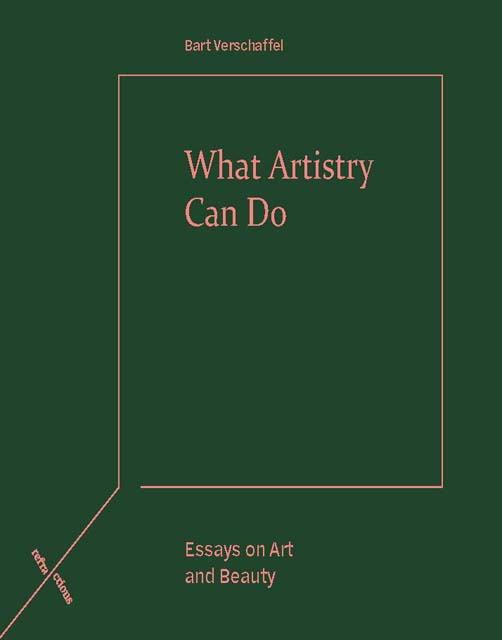Preface
Published online by Cambridge University Press: 18 November 2022
Summary
Philosophical writing on aesthetics often has a problematic readership within art. The impulse to understand what attracts us to art and beauty leads us almost immediately into a thicket of questions. Is there an ‘art’ that all artworks participate in? Do works exist in their own right or are they expressions or relations of persons and institutions? Is beauty a judgement or an affect? From the point of view of the practitioner or the art historian, aesthetics is both fascinating and repellent. It asks the fundamental questions but in so doing takes us away from our initial orientation to the work. The intellectual adventure of attempting to understand how we appreciate nature and make art becomes instruction, often conflicting instructions, on how we ought to be in the world.
A route to escape this thicket of aesthetics is offered here in Bart Verschaffel’s writings on aesthetics, and it is no mistake that the word ‘aesthetics’ does not appear in the title. The mode of the essay allows Verschaffel to open questions proper to aesthetics but to stay with the object or issue under inquiry. How can we have a discourse on beauty, one that is broad enough to encompass the beauty of persons and artefacts? How can we understand the artwork as a thing and as an individual and a culture's capacity for making? Such fundamental questions of aesthetics are not answered in this volume, but they are departed from and arrived at anew in language that is immediate and compelling.
Verschaffel trained in philosophy and history and has built a career teaching architectural theory and the philosophy of culture to architects at Ghent University. He has been instrumental in conceptualising what research in architecture should be in the modern university. His rigour and foresight about the possibilities and, perhaps more so, the pitfalls of fitting architecture and art into a template based on the positive sciences have been foundational for a whole generation of scholars and practitioners in Belgium and beyond. At the same time Verschaffel has been an active critic and curator in the visual arts throughout his career, acting as a scriptwriter for television documentaries on the arts from Thierry De Cordier to Jan Fabre.
- Type
- Chapter
- Information
- What Artistry Can DoEssays on Art and Beauty, pp. xii - xviPublisher: Edinburgh University PressPrint publication year: 2022



